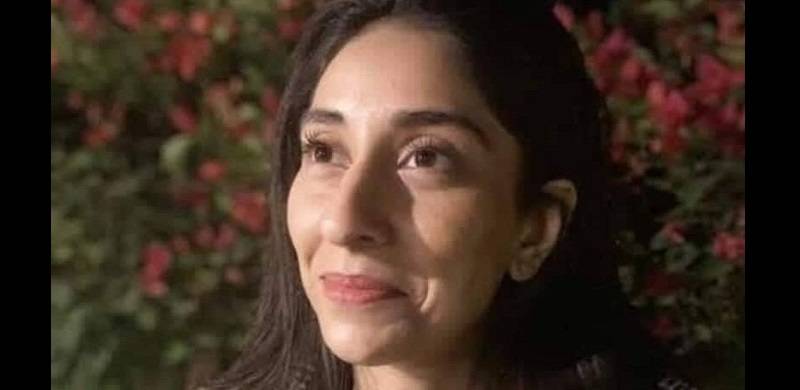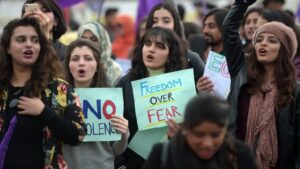
This month, more than ever, has shown the importance of acknowledging the inequities of mental health, inequality and injustice. Ethics and Morality are uneasy bedfellows. The classical Greek philosopher Aristotle tried to prescribe a moral code of conduct for a good life. His premise was that personal values can differ from societal values. Where there is conflict, there can be a debate.
The recent murder of a young woman in Islamabad, Noor Mukadam, was particularly heinous. She was kept unlawfully, against her will, and then killed and beheaded by a friend Zahir Jaffer. The thinking public, even the killer’s own family, has condemned this brutal, senseless act. It was more than a personal aberration. It is a flagrant, premeditated violation of societal norms and values.
This killing has received even more attention due to the high profiles associated with the families – educated and well heeled. It has led an inevitable outpouring of grief and outrage, but also highlights the conflict within Pakistan. One only needs to look at comments on a Washington Post article as well as other online spaces to see the dark rainbow of prejudices – e.g. that dating is not allowed in Islam, that the victim should not have been meeting him at his house, etc.
Needless to say: forcibly and blindly asserting these views simply detracts from the seriousness of the crime.
Social media can play a negative role: the unsubstantiated rumours about the families, the gratuitous suppositions, the crass language used and the medieval call for public retribution – not just for the killer but the entire infrastructure that supports him. Friends and well-wishers on both sides are caught in a bind, too shocked to comment publicly. The fact that there are sides is telling enough.
The law, as Dickens wrote, may be an ass, but it is the only ass we have, to carry the burden of order in a civilised society. In Pakistani reality, it does not protect all citizens equally. Ask any woman or a person from a minority community and hear their stories. These can be uncomfortable to digest and so we brush them away – by saying this is “not who we are” etc.
Perhaps it is a human condition to want to know the reasons for why things happen the way they do. Behaviour is the by-product of habits and action, while Judgement depends on reason. What we see around us and what we are comfortable with is precisely what we replicate. Our children in turn observe our actions more than our words. And these shocking instances, whether of murder, rape or heinous crimes committed do inevitably force a society to assess its value system. What do we as civilised communities stand for? What do we believe in? What should we condone and what do we condemn?
Sadly, there are some residual practices in Pakistan left over from a tribal society. The concept of blood money in exchange for murder is written into the legal system here. The concepts of qisas and diyat were introduced in 1990 as local ordinances that hardened into law in 1997. Qisas is an eye-for-an-eye form of retribution. It involves applying the same harm that a suspect inflicted on a victim. Diyat is the compensation or “blood money” to the victim or his/her family. These arcane concepts have been enshrined into our legal and political system. In contrast, the Domestic Violence Prevention Bill has been proposed but not enacted. Therefore, it does not cover domestic violence cases such as Noor Mukadam’s. Pause for a moment and think of the implications of what we are saying about ourselves when we cannot even agree as a society about domestic violence!
Every time such an atrocity happens, we are reminded of the choices that we make in our country again and again – whether with women’s rights, minority protection or legal justice. One can be patriotic and still remember the failings of a system. Thousands of years ago, Aristotle devised a guide for statesmen and politicians on living a moral life. But when society reaches a stage when it purports not only to condone but justify killing legally, it is time to get off the mad roundabout.
No one would disagree that murder deserves punishment. The recent death in the U.S. of George Floyd – in which he was suffocated by stranglehold – sparked protests around the world. It led rightly to the conviction of the culpable policeman Derek Chauvin. But what of Chauvin’s enabling fellow officers and the bystanders with their handy mobiles recording the scene? How far should responsibility and condemnation be spread? To what extent can they compensate for a lost life?
Unfortunately, we have a long way to go before the value of a woman’s life is seen as equal to that of a man. We rank as the second lowest country in terms of gender equality according to the Global Gender Gap. In development, gender equality is a central component. Though Pakistani women were granted suffrage in 1947, women's’ rights have been eroded over time by state and society. Progress for women is often caught up in political machinations.
Though we may fight and protest in the streets and through candle vigils, little will change until men concede that women are not a weak sex to be dominated and that they are not property to be controlled through their actions. We may be daughters and wives but we deserve equality and recognition for ourselves and for our daughters in turn.
Like many other things in life, when given the choice of things to do, one can either choose the right or the wrong, the moral or the immoral. The devil lies in the overlap. It is at times like these that we are tested as a society. Do we make choices that are moral or just expedient? The world is watching how we handle the Noor Mukadam case.
The recent murder of a young woman in Islamabad, Noor Mukadam, was particularly heinous. She was kept unlawfully, against her will, and then killed and beheaded by a friend Zahir Jaffer. The thinking public, even the killer’s own family, has condemned this brutal, senseless act. It was more than a personal aberration. It is a flagrant, premeditated violation of societal norms and values.
This killing has received even more attention due to the high profiles associated with the families – educated and well heeled. It has led an inevitable outpouring of grief and outrage, but also highlights the conflict within Pakistan. One only needs to look at comments on a Washington Post article as well as other online spaces to see the dark rainbow of prejudices – e.g. that dating is not allowed in Islam, that the victim should not have been meeting him at his house, etc.
Needless to say: forcibly and blindly asserting these views simply detracts from the seriousness of the crime.
The law, as Dickens wrote, may be an ass, but it is the only ass we have, to carry the burden of order in a civilized society. In Pakistani reality, it does not protect all citizens equally. Ask any woman or a person from a minority community
Social media can play a negative role: the unsubstantiated rumours about the families, the gratuitous suppositions, the crass language used and the medieval call for public retribution – not just for the killer but the entire infrastructure that supports him. Friends and well-wishers on both sides are caught in a bind, too shocked to comment publicly. The fact that there are sides is telling enough.
The law, as Dickens wrote, may be an ass, but it is the only ass we have, to carry the burden of order in a civilised society. In Pakistani reality, it does not protect all citizens equally. Ask any woman or a person from a minority community and hear their stories. These can be uncomfortable to digest and so we brush them away – by saying this is “not who we are” etc.

Perhaps it is a human condition to want to know the reasons for why things happen the way they do. Behaviour is the by-product of habits and action, while Judgement depends on reason. What we see around us and what we are comfortable with is precisely what we replicate. Our children in turn observe our actions more than our words. And these shocking instances, whether of murder, rape or heinous crimes committed do inevitably force a society to assess its value system. What do we as civilised communities stand for? What do we believe in? What should we condone and what do we condemn?
Sadly, there are some residual practices in Pakistan left over from a tribal society. The concept of blood money in exchange for murder is written into the legal system here. The concepts of qisas and diyat were introduced in 1990 as local ordinances that hardened into law in 1997. Qisas is an eye-for-an-eye form of retribution. It involves applying the same harm that a suspect inflicted on a victim. Diyat is the compensation or “blood money” to the victim or his/her family. These arcane concepts have been enshrined into our legal and political system. In contrast, the Domestic Violence Prevention Bill has been proposed but not enacted. Therefore, it does not cover domestic violence cases such as Noor Mukadam’s. Pause for a moment and think of the implications of what we are saying about ourselves when we cannot even agree as a society about domestic violence!
Every time such an atrocity happens, we are reminded of the choices that we make in our country again and again – whether with women’s rights, minority protection or legal justice. One can be patriotic and still remember the failings of a system. Thousands of years ago, Aristotle devised a guide for statesmen and politicians on living a moral life. But when society reaches a stage when it purports not only to condone but justify killing legally, it is time to get off the mad roundabout.
No one would disagree that murder deserves punishment. The recent death in the U.S. of George Floyd – in which he was suffocated by stranglehold – sparked protests around the world. It led rightly to the conviction of the culpable policeman Derek Chauvin. But what of Chauvin’s enabling fellow officers and the bystanders with their handy mobiles recording the scene? How far should responsibility and condemnation be spread? To what extent can they compensate for a lost life?
Pause for a moment and think of the implications of what we are saying about ourselves when we cannot even agree as a society about domestic violence!
Unfortunately, we have a long way to go before the value of a woman’s life is seen as equal to that of a man. We rank as the second lowest country in terms of gender equality according to the Global Gender Gap. In development, gender equality is a central component. Though Pakistani women were granted suffrage in 1947, women's’ rights have been eroded over time by state and society. Progress for women is often caught up in political machinations.
Though we may fight and protest in the streets and through candle vigils, little will change until men concede that women are not a weak sex to be dominated and that they are not property to be controlled through their actions. We may be daughters and wives but we deserve equality and recognition for ourselves and for our daughters in turn.
Like many other things in life, when given the choice of things to do, one can either choose the right or the wrong, the moral or the immoral. The devil lies in the overlap. It is at times like these that we are tested as a society. Do we make choices that are moral or just expedient? The world is watching how we handle the Noor Mukadam case.

